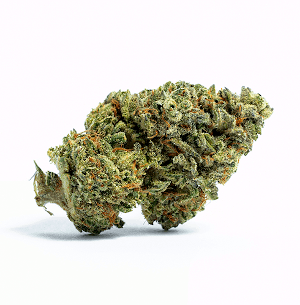Cannabis law in Ranong Thailand:
In 2018, Thailand made a groundbreaking move by becoming the first country in Southeast Asia to legalize medical cannabis. The legislation was driven by growing recognition of the potential medicinal benefits of cannabis and its long-standing cultural and traditional use in the region.
Medical Cannabis Regulations:
Under Thailand’s medical cannabis regulations, access to medical marijuana is allowed for specific medical conditions. Patients with qualifying conditions can obtain medical cannabis prescriptions from licensed healthcare professionals. However, access to medical cannabis products is closely regulated, and they must be obtained from authorized medical cannabis dispensaries.
Personal Use Decriminalization:
While medical cannabis is now permitted for specific medical conditions, recreational use remains illegal. However, in 2018, Thailand decriminalized the possession of small amounts of cannabis and its derivative products for personal use. The possession of up to 10 kilograms of fresh cannabis or 90 grams of dried cannabis is considered a misdemeanor, punishable by a fine or mandatory rehabilitation. Despite the decriminalization, it’s essential to remember that cannabis possession for recreational use is still prohibited.
Cannabis Cultivation:
Cannabis cultivation remains illegal in Thailand, both for personal and commercial purposes, except for authorized entities with proper licenses from the government. This is to regulate the supply and ensure that cannabis cultivation is carried out for legitimate purposes, such as medical and research use.
Hemp Cultivation:
In addition to medical cannabis, Thailand has also taken steps to promote the cultivation of hemp for industrial purposes. In 2019, the Thai government removed hemp plants with THC levels below 0.2% from the list of prohibited narcotics. Since then, hemp cultivation for industrial use has been permitted under strict regulations. Hemp is used for various industrial purposes, including the production of textiles, construction materials, and dietary supplements.
Penalties for Violations:
As mentioned earlier, penalties for cannabis-related offenses in Thailand vary depending on the specific violation and the quantity of cannabis involved. For possession of small amounts for personal use, individuals may face fines or mandatory rehabilitation. However, for more substantial offenses, such as possession with intent to distribute or illegal cultivation, penalties can be severe, including lengthy imprisonment and hefty fines.
Future Developments:
Thailand’s cannabis laws are evolving, and the government continues to monitor the impact of its regulatory framework. As the medical cannabis industry develops, more medical conditions may be added to the list of qualifying conditions for medical cannabis use. Additionally, regulations surrounding the cultivation, sale, and use of hemp and hemp-derived products may be refined to accommodate the growing interest in industrial hemp.
Conclusion:
Cannabis law in Ranong Thailand has taken significant steps in reforming its cannabis laws, legalizing medical cannabis and decriminalizing small amounts of cannabis for personal use. However, it’s crucial to understand that recreational use and unlicensed cultivation of cannabis remain illegal. While Ranong, as a province, must adhere to the national cannabis laws, specific local regulations may also be in place. As the legal landscape continues to evolve, it’s essential for residents and visitors of Ranong to stay informed about any changes or updates to cannabis laws in the region.



